If you are one of the many people who are dealing with acne, then you know how frustrating this can be.
Not only is acne annoying and even painful in some cases, but it can also leave behind scars that are difficult to get rid of.
So, if you are currently taking Accutane for your acne, you may be wondering if you can also do acne scar treatment to get rid of both issues as soon as possible.
And while there might be some safe options that you can do, there are others that you should stay away from for the time being.
This article will provide some information on the best ways to treat acne scars while on Accutane and which treatments to avoid.
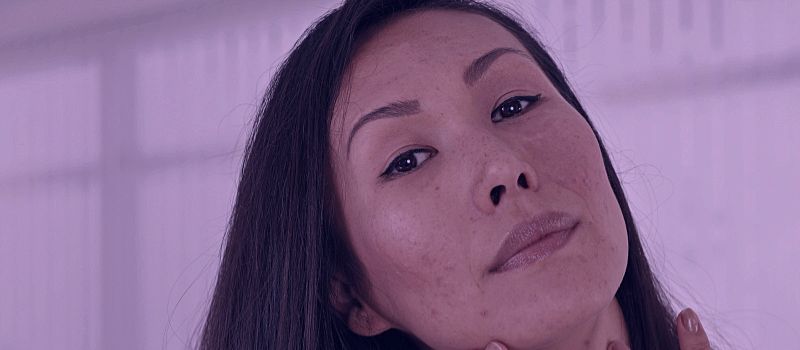
What is Accutane, and How Does it Work?
Accutane is the brand name for isotretinoin, an oral medication used to treat severe acne.
It is also commonly prescribed to people whose acne has resisted previous treatments, such as benzoyl peroxide, adapalene, and antibiotics.
The exact mechanism of action is unknown; however, it’s been observed that Accutane inhibits the function of the oil-producing glands by reducing the gland’s size.
Once the gland’s size is reduced, the gland will then produce less oil.
Since excess oil is essentially food for the acne-causing bacteria that live on the skin, lack of it will cause the bacteria to become starved, thus minimizing proliferation and eventually minimizing acne, too.
Accutane is a very effective medication; however, it’s known to come with some unpleasant side effects, including redness, sensitivity, peeling, dry skin and lips, headaches, and mood swings in some cases.
Does Accutane Help With Acne Scars?
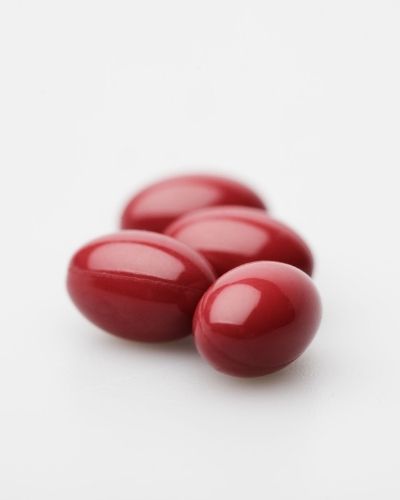
There is no definitive answer as to whether Accutane helps with acne scars or not.
However, some people have seen a significant improvement in their acne scars while taking the medication, whereas others have not seen any difference.
The reason for this discrepancy may be due to the fact that everyone’s skin is different and will respond differently to the medication.
However, what’s known is that Accutane will not only help get rid of active acne but will also prevent new ones from forming.
Therefore, less inflammation means less acne, which also means less scarring.
So some people may see improvement in their scarring, especially scars that have to do with pigment change (such as hyperpigmentation) because the scarring wasn’t so severe, to begin with, and just faded over time, and there wasn’t new inflammation to create new scarring.
Additionally, some people might see improvement in the red marks known as post-inflammatory erythema, which are more common in fair skin because these are also a product of inflammation, so the scars will eventually fade on their own with less inflammation due to Accutane.
Lastly, some people might even see improvements in scars that are the result of uneven depositions of collagen, such as ice pick and boxcar scars, and although this is rare, it probably has to do with Accutane potentially correcting the irregular deposits of collagen.
Acne Scars Treatments You Can Do While on Accutane
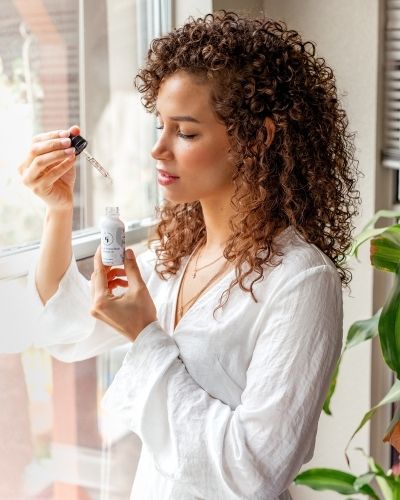
There are many treatments for acne scarring available on the market, and here are some that you can do while on Accutane:
Topical Treatments
Topical products are the safest treatment option to do while on Accutane.
However, even though most topical treatments won’t go as far as to improve ice pick and boxcar scarring, they may very well be what you need to fade hyperpigmentation and improve post-inflammatory redness.
Here are the best ingredients that will help you improve acne scars:
Azelaic acid is a naturally occurring compound found in wheat, rye, and barley.
It’s been shown to be very effective in treating acne and acne scars, including post-inflammatory hyperpigmentation, post-inflammatory redness, and uneven texture.
Azelaic acid is also helpful in reducing inflammation and is a very gentle ingredient that’s safe to use while on Accutane.
Niacinamide
Niacinamide, also known as vitamin B3, is an effective acne scar treatment that helps improve the appearance of hyperpigmentation, redness, and overall skin texture.
It does this by decreasing inflammation and regulating the enzymes responsible for the transfer of melanin to the skin’s surface.
Niacinamide also strengthens the skin barrier, which can be beneficial for those experiencing dryness and peeling while on Accutane.
Kojic Acid
Kojic acid is a compound derived from mushrooms, and it’s been shown to be effective in treating hyperpigmentation that often comes from acne scars.
Although it doesn’t soften the thickness of the scar tissue, it may reduce brown spots, hyperpigmented areas, and even post-inflammatory erythema.
Retinol
Retinol is a component that belongs to the family of retinoids, which are vitamin A derivatives.
It works by encouraging rapid cellular renewal from the deeper layers of the skin.
The rapid cellular turnover will inevitably cause the dead skin cells on the skin’s surface to shed faster, which is why it can be said that retinol has an exfoliating-like action, but it’s a little bit different than regular exfoliation.
This action will rapidly clear out and decongest clogged pores and shed superficial hyperpigmentation until the skin tone is completely evened out and uniform.
Other than that, retinol can also neutralize free radicals and boost the production of elastin and collagen.
An increase in collagen and elastin production creates a “plumping” effect, which reduces the appearance of ice pick and boxcar scarring.
It’s worth mentioning that retinol alone might not completely eliminate this type of scarring, but it will definitely improve their appearance over time.
IPL
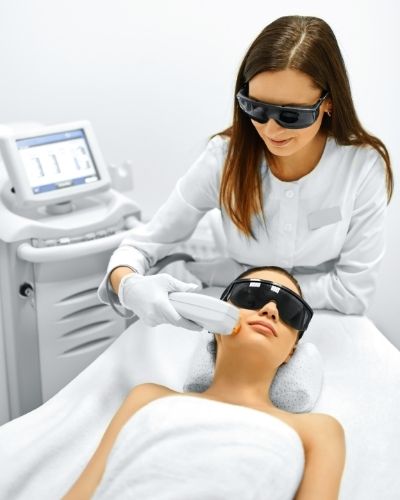
IPL, also known as intense pulsed light therapy, is a type of laser treatment that’s used to improve the appearance of acne scars.
It works by targeting the red and brown pigmentation that remains after acne has cleared, and it can also help improve skin texture and reduce pore size.
However, IPL isn’t as effective in treating ice pick and boxcar scars, so it might not be the best option for you if this type of scarring is your primary concern.
Direct High Frequency
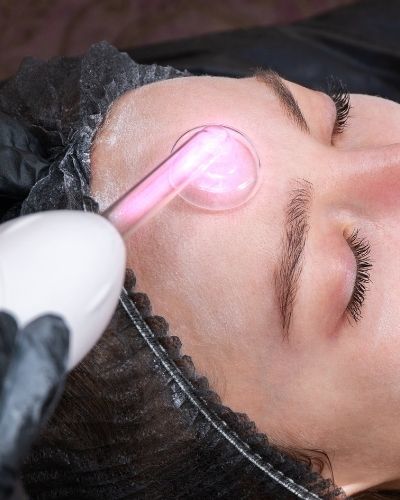
A direct high-frequency facial is a safe, non-invasive treatment that involves using a machine to infuse oxygen into the skin and rejuvenate it.
It’s beneficial for those looking to improve the appearance of wrinkles, fine lines, and acne scars.
The treatment is also helpful in reducing inflammation and restoring the skin’s pH balance.
However, since direct high frequency isn’t a non-invasive treatment, it isn’t effective in getting rid of ice pick and boxcar scars.
Acne Scars Treatments You Cannot Do While on Accutane
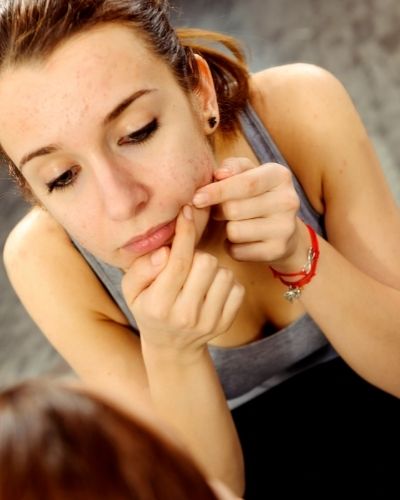
Additionally, there are other highly effective treatments for acne scarring; however, there are several reasons why you can’t get these done while on Accutane.
The first reason is their potential to cause intense irritation, as most of them work by damaging the skin and encouraging it to repair itself.
Your skin is highly sensitive while on Accutane, and you would probably need to be off the treatment for six months to a year before you could do any of the treatments I’m going to mention below.
The second reason is the cost.
Most of these treatments are costly, which is why you want to go through with your course of medication and get rid of active acne so that you won’t have to continue throwing money on treatments while still breaking out.
With that said, here are a few treatments that you can’t do while on Accutane:
Chemical Peels
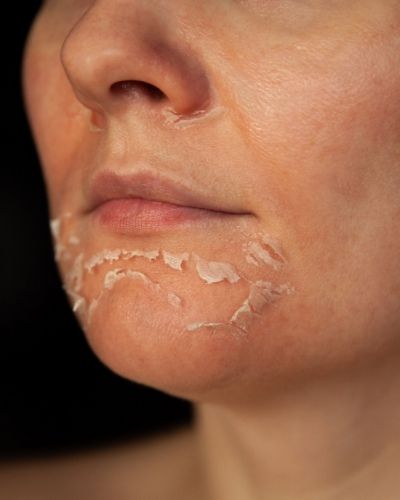
Chemical peels are a type of treatment that involves the application of acid to the skin.
The acid causes the top layer of skin cells to peel off, revealing newer, healthier-looking skin underneath.
There are different types of chemical peels available, but they all work in essentially the same way.
Chemical peels are perfect for treating post-inflammatory hyperpigmentation and texture.
And although a very effective treatment, chemical peels can’t be done while on Accutane because they are just too harsh and can cause severe irritation, which can lead to permanent scarring (that you would have to also remove with costly treatments afterward.)
It’s best to wait at least six months post Accutane for a chemical peel.
TCA Cross
TCA CROSS is the chemical reconstruction of skin scars (CROSS) using trichloroacetic acid (TCA). It is often used as an outpatient clinic procedure to treat atrophic acne scars.
The TCA CROSS procedure involves depositing small amounts of TCA at high concentrations (70–100%) onto the surface of the atrophic scar.
This causes a local inflammatory reaction leading to the formation of new collagen fibers.
The aim is to improve the appearance of the scar by increasing collagen reflectance and reducing shadows cast over scar depressions.
And while the complete resolution of deeper scarring is unlikely to be achieved with this treatment method alone, it’s a good option to try.
Microdermabrasion
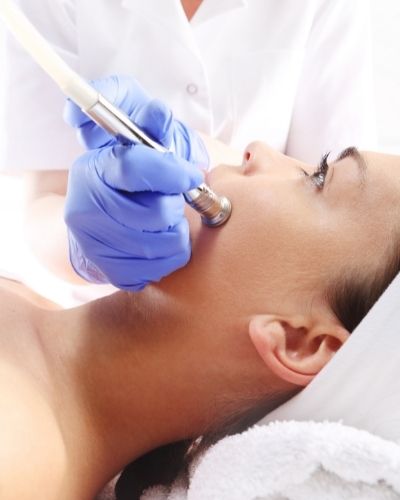
Microdermabrasion is a minimally invasive cosmetic procedure that uses a handheld device to spray tiny crystals onto the skin.
This removes the top layer of skin, revealing newer and brighter-looking skin underneath.
Microdermabrasion is great for treating acne scars, as it helps remove dead skin cells and encourages new cell growth.
However, it’s not a good option for those who are on Accutane because it can cause skin irritation and further inflammation.
It’s best to wait at least six months after stopping the medication before undergoing this treatment.
Microneedling
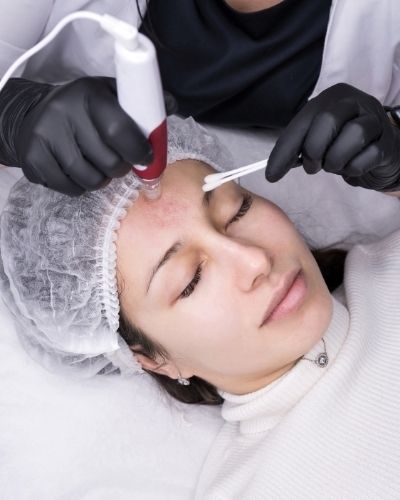
Microneedling is a minimally invasive procedure that involves the use of tiny needles to prick the skin.
This causes small wounds to form, which then trigger the body to produce new collagen and elastin.
Microneedling is great for treating atrophic acne scars as it helps to break down scar tissue and encourages new cell growth.
However, since it can be quite an intense treatment, it’s recommended to wait six months to a year post-Accutane before trying it out.
RELATED: How To Repair Skin Damage From Acne?
CO2 Laser
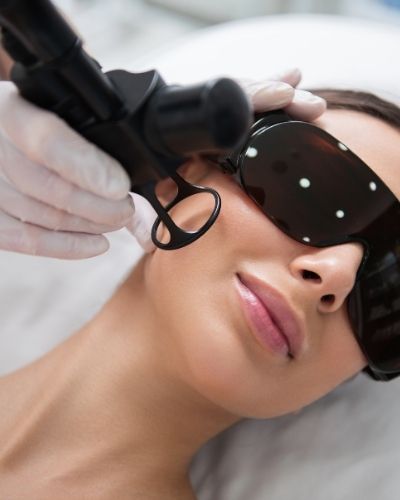
CO2 lasers are a type of laser used to treat a wide variety of skin conditions.
This includes all types of acne scars, including hyperpigmentation, post-inflammatory redness, and atrophic scarring alongside sun damage, wrinkles, and more.
CO₂ lasers work by emitting short, concentrated pulses of light onto the skin.
This then causes the tissue to heat up and vaporize.
This vaporization then causes the skin to tighten and produces new collagen.
CO2 lasers are an excellent option for those who have finished their course of Accutane and are looking for an intense treatment to help improve the appearance of their acne scars.
However, it’s important to note that this is not a quick or easy treatment, and downtime can last up to a month or more.
During the healing process, you would have to be extremely careful and patient with your skin, and although the recovery can be quite miserable, the treatment is luckily so effective that you would only have to do it once or twice.
RELATED: Best Products To Repair The Skin Barrier.

My name is Simone and I am a certified skin specialist. I created this website to teach my readers how to take great care of their skin and I also like to occasionally share my honest opinions on skincare products I’ve tried. You can learn more about me here.

CO2 lasers are a fantastic alternative for folks who have completed their Accutane treatment and are looking for a more intensive therapy to help enhance the appearance of their acne scars. Thank you!